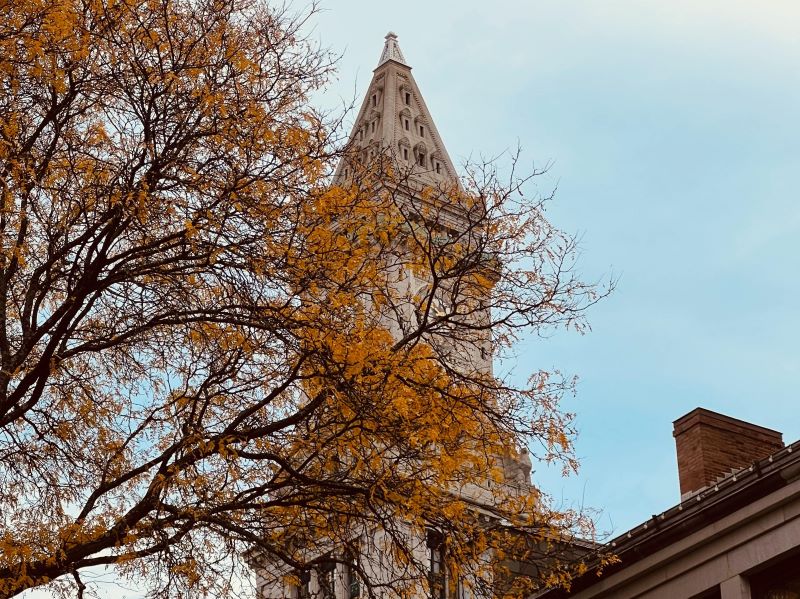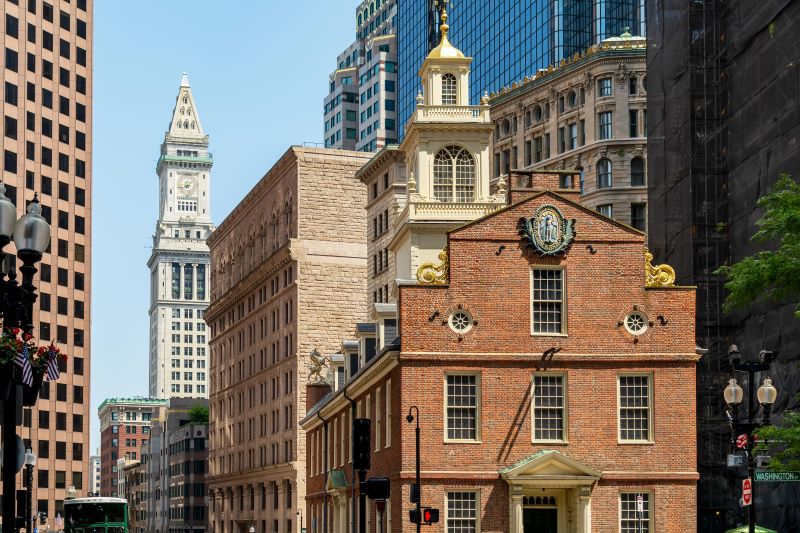
This Post Has Been Updated for 2020!
Click Here to View Updated Housing Market Predictions
Last year we predicted a continued climb in real estate prices for 2018. Many experts said we’re in for a market correction. Many said it can’t continue, and eventually it has to reach a tipping point. We heard the loud clarion calls yet again in late 2018 from the naysayers and the risk averse real estate investors. Well, we keep hearing from some that a market correction is coming, and eventually you are going to be right; but not in 2019.
Eventually, if you say it’s 8pm over and over you will be right; the clock will line up with your thinking. We have now been listening to these voices from some investors and buyers WISHING for a market correction for three years. Hang in there, you only have to say it for a couple more years. Once again the negative Ned’s and Nancy’s of the world are going to be on their bully pulpit doubling down on the sky is falling. But, to those of us studying the real time apartment vacancy rate, rents, jobs, wage growth, sale prices, venture capital spending and unit production; maybe we see something from a different vantage point.
When you rent thousands of apartments per year you see the world happening in real time. Applications for apartments reveal some incredibly great jobs out there with high salaries and large bonuses. The co-signers are also looking stronger than ever. Credit scores are looking strong. Where is all this noise about a real estate market crash coming from? Certainly not from Bostonpads.com; we think 2019 is all systems go in real estate.
The Median sale price for a single-family home in Boston started the year of 2018 at $580K. Throughout the first half of 2018, that number continued to surge, reaching a record high of $652,000 in July. We were surely headed for another year of double digit growth and a runaway win. But then the unthinkable happened. In November, they sent Tom Brady out for a pass on a trick play, fell short of the first down, and gave the ball back to the opposition on the next play. The market and the game changed. For the first time in over two years, we saw a decrease in home values over the final half of 2018, and it settled to around $620,000 by years end, about a 6.5% increase over the year. Hmm.
Imminent collapse of a real estate and football dynasty, right? Not so fast.
Perhaps the market crash crowd are the same people that were saying Tom Brady was washed up, didn’t have the arm, and Belichick didn’t beef up his roster enough during the off season, even with a winning record. The facts however remain curious. Just as Tom Brady lead the Pats to the Super Bowl, the Boston real estate market will surprise the non-believers… again. In the Patriots and Boston real estate market we trust! We won again with a positive outcome and the numbers prove it!
Boston is still hot, red hot in fact. Not just the real estate market, but business in general is booming. Nothing signifies this more than the amount of Venture Capital that is rolling into the city. According to Crunchbase, Boston and it’s surrounding cities raised more than $8.8 billion dollars in capital funding in 2018, a 41% increase from 2017. So if investors are doubling down on Boston, you can bet this money will flow throughout the local economy, and the Boston real estate market is no exception. The bottom line is that jobs push the offensive line, and the main indicator is shouting that the economic Lombardi Trophy is staying put here for another year. Boston’s unemployment rate is at it’s lowest point in history, hitting 2.4% according to Mayor Walsh’s State of the City address earlier this year. Venture capital and the innovation economy, nestled in tech based cities, nearly always unleashes more high paying jobs, and you see this play out throughout most of the United States, and especially in Beantown. Expect velocity of spending to increase as new tech disruptors start to scale in 2019. A rising tide of spending helps lift all boats. This bodes well for the real estate market, and the local economy as a whole.
Market Demand for Real Estate Will Continue to Drive Growth
While the price correction seemed inevitable, there’s still plenty of evidence that the real estate market remains strong and can sustain and even climb in many parts of Greater Boston and within the Commonwealth. As home prices in Boston increased steadily through the first half of 2018, average days on the market decreased from 85 to less than 60 during that time. So while prices were climbing, sellers didn’t having any issues finding buyers.
This can be attributed to the steady increase in demand for Boston homes. While many of the large metro areas in the US are losing residents, Boston continues to add new residents year after year. This is very attractive for investors, who are currently driving the market. Mayor Marty Walsh plans to add tens of thousands of units to our housing inventory over the next decade, which will continue to feed the increase demand for housing in our thriving local economy. Even with an active administration trying to push development as quickly as possible; demand will continue to outstrip supply. Neighborhood groups throughout many portions of Boston have been quite vocal lately in opposition of new construction. Some neighborhood groups have been quite effective in slowing down or halting all types of development projects and the result is lower supply which will keep pricing higher. We are still far short of the 30,000 units needed per year in Boston just to keep pace with general population growth. Adam Smith would argue from his grave that low supply and high demand lends itself to price increases regardless of most headwinds. Look for prices to remain steady or climb in 2019 and total homes sold to increase this year.
And of course, there’s plenty of new inventory to go around in many different market segments based on demand. One could make a small case that there could be a slight over-weighted average of luxury apartment in Boston, but absorption is still looking strong. We see a significant amount of web traffic and renting and selling of luxury properties proving that these buildings were merited. As Boston reshapes its skyline, we’re running out of real estate to continue to build so close to the city’s center. Development will inevitably continue to march towards the outer areas of the city. What will be interesting to watch is how bigger home construction is received in the suburbs, as some areas are not always receptive to new development projects. Look for accelerated development projects to be approved in areas such as but not limited to: East Boston, Chelsea, Allston, Roxbury, South Boston, Dorchester and Cambridge over the course of this year. Transformation and vibrancy brought to numerous areas will be reshaping Boston over the next 12-36 months.
First Time Home Buyers in Boston Still Have a Chance at Buying
In January, Policymakers at the U.S. central bank voted unanimously to keep borrowing costs unchanged, holding the benchmark interest rate in a range of 2.25 to 2.5 percent. The word “patience” was used as a guide to future rate hikes. This could easily be interpreted as rates staying at attractive price points for buyers going three quarters into this year or more. With high tech and other skilled labor positions under constant upward wage pressure in Boston, you can rest assured that many first time home buyers will jump in with their higher salaries.
The overall construction costs of delivering new apartments and properties to the marketplace will continue to rise, as more safety, home-technology integration, and material and labor costs become greater. So while people may or may not be interested in buying, rents will continue to go up on properties that people actually want to live in, and this pushes the hand of people wanting to buy instead of renting.
Apartment Rent Will Continue to Increase in Boston
Rents will continue to rise in 2019 based on a number of factors including but limited to: higher tax assessments, construction costs, job creation and related demand. While many will choose to purchase property in 2019, there will also be a significant portion of qualified first time home buyers will opt out and settle on renting an apartment in Boston while they decide to wait out this market cycle. Regardless of which path consumers take we simply don’t have enough supply in either sector of real estate to dampen upward pressure in both rentals or sales.
Regardless of how many dorms we build, or how vertical we go; Boston is a densely packed small footprint with many historical and cultural areas that slow or halt the progress of supply. We are seeing another strong rental market this year with average rents pushing higher by 5% and vacancy rates in Boston looking lower so far in 2019. Landlords are telling us the market is strong and the data is backing them up. Our real time database shows only a 3.5% vacancy rate. We base this number by looking at 71,888 non luxury building units. We do not include luxury buildings in this survey as it is challenging to get the most accurate information in much larger buildings. Therefore, our data looks in detail at the widest section of properties covering over 15,000 landlords. When you have nearly 72,000 non luxury apartments and only 2551 available for rent you can surely expect landlords to feel confident.
Many landlords have told us their properties are renting faster this year, and they are receiving more inquires from their tenants that they would like to renew. While there will be small tiny pockets of disruption in some leasing markets due to dorms being built or large luxury buildings going up; this will not buck the overall trend. Everything is alive and well in Greater Boston. In fact, average rent prices have increased anywhere from 10-20% over the past 18 months in certain neighborhoods and areas, that trend may even accelerate through the course of 2019. Look for rent prices to continue to push upward and outward into areas that have not normally seen significant rent increases.
Investors Will Drive the Market As New Development Continues
With over 15,000 landlords in our real time real estate database, for every one seller there are still 50 buyers, ready, willing and able to sign and close. Yes, there are some institutional players selling some of their lesser attractive units in their portfolios, but then they turn right around and ask us if they can find another property for a 1031 like kind exchange, DST, or find a property in an empowerment zone. We have received many inquires from investors searching further and further away from the city in areas such as Cape Cod, New Bedford, Fall River, Worcester and more.
The cap rate arbitrage spins itself in earnest and in perpetuity and accelerates towards the tail end of long real estate bull run. Landlords often sell on cap spread, or see turn around plays in less capital heavy areas, and venture further as their experience and knowledge grows, and returns dwindle in Boston on higher initial purchase prices. There are few landlords today that simply purchase an investment property as it is and expect a great rate of return. Value creation is the name of the game. Unlocking the value often requires working with apartment leasing and sales professionals that know what is hot, what style or product, price point or size will move quickly and throw off the best return. Go with market leaders for informed decisions on what to build, renovate, sell or hold.
Despite rising prices, Boston continues to be one of the best cities to invest in for it’s population growth and strong local economy. That combined with increasing rent prices, investors can see a ton of upside in investing locally if you have the right data in front of you and people that can execute on a plan.
Conclusion
It looks like another positive year for Boston’s thriving real estate market. Despite recent leveling of home prices and high barriers to entry, there still exists enough demand to sustain another year or more of growth. Combine that huge demand with a modest increase of supply, rising wages, and continued population growth, those who can afford a house in Boston will do well on their investment. While portions of real estate market may cool off in different parts of our nation, Boston will stay hot well into 2020.
Yes, we may be getting closer to the end of the real estate market run up in Boston, but not yet. Like Tom Brady in the fourth Quarter, the Patriots find a way to win, and so will the Boston Real Estate Market. It’s a path, it’s a process, success is predictable. Boston has both staying and comeback power in real estate because of it’s mixture of: capital, great teamwork, diversity and innovation. Tom Brady intends to continue to play as quarterback for an additional five years and his retirement may well be in syncopation with our real estate title town real estate run. One thing is for sure, it is certainly interesting to watch a legendary run of a great team as well as a great city! Stay tuned!
Demetrios Salpoglou
Published February 13, 2019
Demetrios has pulled together the largest apartment leasing team in the Greater Boston Area and is responsible for procuring more apartment rentals than anyone in New England – with over 130k people finding their housing through his services. Demetrios is an avid real estate developer, peak performance trainer, educator, guest lecturer and motivational speaker.





